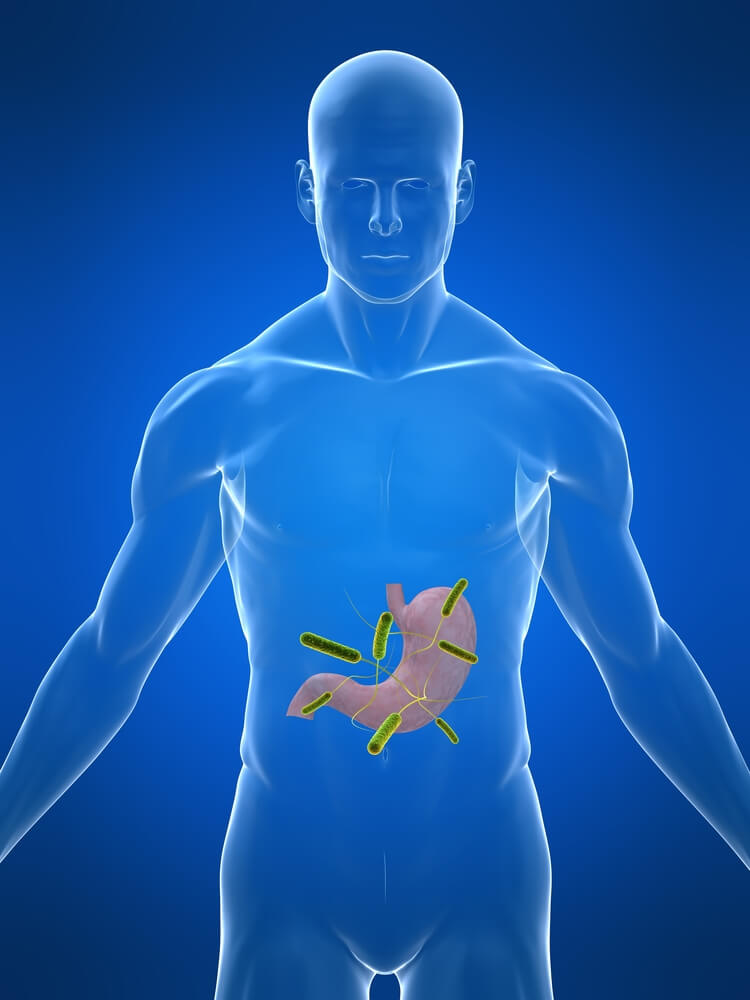The population of intestinal bacteria affects our body weight

"The meat is just wonderful today." I announced to my friends over the dinner table. Indeed, I was lucky and blessed with an extremely well-to-do friend, who has a strong fondness for fancy dinners and fine meat.
"We don't settle for less than the best." His wife nodded sharply. She looked thoughtfully at my wife. "Of course, I personally don't touch greasy meat that much. Health is mandatory, and so is morality. and the decree. Do not you think?"
I had a hard time not frowning. Our sages have already said that taste and smell should not be debated, but I would not want to exchange partners with my friends. My wife - thin among thins, it should be noted - sent me a pleading look. Did she want me to fight for her honor? I knew not. I thought so.

"Oh, we almost don't address the matter of fat. Haven't you heard about the poisonous bacteria?" I asked casually.
The host - on whose hands and neck I could still see thin folds of skin left over from the last diet - just curled her lips with a smile that had never reached her eyes. "I don't think we need bacteria like that on this table." saying. "I wonder if the desserts are ready yet, could you check, Potsky?"
Her husband rolled his eyes, and rolled into the kitchen. I didn't let such a minor distraction affect me.
"We all have harmful bacteria." I said softly. "It has been suspected for a long time that our gut bacteria are responsible for some of the obesity. The idea is that there are different types of bacterial populations in the gut. Each of the different species of bacteria benefits from the foods we eat, and extracts energy from them for the body in a different way. If you have particularly effective bacteria, you can eat plenty of food - but hardly gain weight."
Had my eyes not been riveted on hers, I might have missed the slight dilation of the pupils. I continued to design the bait.
"In the last few months, a new study came out that showed that something strange happens in the intestines following the medical procedure known as gastric bypass surgery." I said "In this operation, the surgeon creates a small stomach pocket, and connects it directly to the intestine, and thus the food passes quickly into the intestine. Most of the operated lose weight sharply within a few months. At first they thought that the weight loss was caused because the new stomach was too small to allow the operated people to eat a lot, but then they discovered that the population of bacteria in the intestines also changed following the operation."
"I really don't see what there is to be excited about." said the hostess tall-tall. "It is clear that the population of bacteria in the intestines will change, because they receive new food, which has not been processed for a long time in the stomach. Such food will support the growth of bacteria of a different type than the one that has grown so far."
"That was the initial thought." Agreed. "But in an experiment published in the last two months, the researchers showed that when you take the intestinal bacteria of rats that have undergone gastric bypass, and replant them in the intestines of completely normal rats, the normal rats also lose weight. No surgery and nothing."
"And where -" the hostess cleared her throat. "Where can you get these bacteria? There is no risk that we will suddenly become infected with them, in the middle of life?"
I shrugged. "I guess you'll have to find a person who has undergone gastric bypass surgery and ask him for his bacteria. Another option, of course, is to find two extremely thin people - whose gut bacteria may at least belong to the Merza type - and find a way to transfer them to you. Maybe it's even easier than most people think - probably even saliva contains some of the harmful gut bacteria, and who knows? Maybe eating food scraps left behind by thin people can infect you with the right bacteria."
"Ridiculous, of course." The host waved, and her hand hid her mouth. "Not to mention, repulsive."
"of course." I put on a polite smile, and put the fork and knife on the plate to signal that I finished the meal. The other diners imitated my actions. "Absolutely ridiculous."
The assistant began to clear the table. The hostess wrinkled her nose in displeasure. "You always break the dishes on the way to the kitchen." the blame "I'll help you this time."
She disappeared into the kitchen with our plates. After a few moments my friend emerged from there with wide eyes. He approached me with quick steps.
"She..." he began, "She's eating... what did you say to her when I wasn't there?!"
I stopped him with a raised hand. "A lesson in nature." I said "In human nature."
__________________________________________________________________________________________________________________________________________________________________
About the author
Roi Cezana is a researcher in the technological and social forecasting unit at Tel Aviv University, a PhD in nanotechnology from the Technion, a writer on popular science topics and the owner of the "Other Science" blog.
More on the subject
Conserved Shifts in the Gut Microbiota Due to Gastric Bypass Reduce Host Weight and Adiposity, Alice P. Liou et al. in Sci Transl Med, Vol. 5, Issue 178, p. 178ra41, March 27. 2013
A new way to lose weight? www.eurekalert.org/pub_releases/2013-03/hu-anw032513.php



4 תגובות
Not exactly the food the skinny should eat …….
Very interesting because if it is really like that and it is not harmful, then the solution is on the horizon.
This post links to this not-so-scientific but very interesting article:
http://alaxon.co.il/article/%D7%94%D7%91%D7%A2%D7%99%D7%94-%D7%92%D7%93%D7%95%D7%9C%D7%94-%D7%95%D7%A8%D7%97%D7%91%D7%94-%D7%9E%D7%90%D7%99%D7%AA%D7%A0%D7%95/